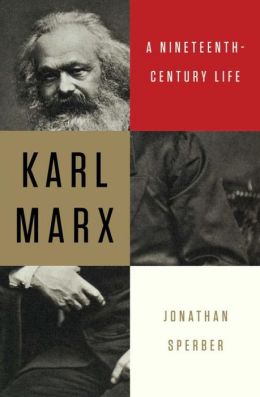 He’s probably the first person ever to lose his job because of his Harvard Ph.D. dissertation–but why did Harvard give him a Ph.D. in the first place?
He’s probably the first person ever to lose his job because of his Harvard Ph.D. dissertation–but why did Harvard give him a Ph.D. in the first place?
“The Harvard PhD and the Hispanics’ IQ: How Jason Richwine’s Dissertation Got Him Fired by the Heritage Foundation.” TheNation.com, May 11, 2013.
http://www.thenation.com/blog/174291/harvard-phd-and-hispanics-iq-how-jason-richwines-dissertation-got-him-fired-heritage-fou
jwiener
FDR: Good for the Jews? LA Review of Books, 5/9
 WHEN GEORGE BUSH saw pictures of Auschwitz at Yad Vashem, Israel’s museum of the Holocaust, he said — with “tears in his eyes” — “we should have bombed it.” Could he have read The Abandonment of the Jews: America and the Holocaust 1941–1945 by David Wyman? That’s the 1984 book that made the refusal to bomb Auschwitz the lasting symbol of FDR’s failure to help Jews in World War II Europe. . . .
WHEN GEORGE BUSH saw pictures of Auschwitz at Yad Vashem, Israel’s museum of the Holocaust, he said — with “tears in his eyes” — “we should have bombed it.” Could he have read The Abandonment of the Jews: America and the Holocaust 1941–1945 by David Wyman? That’s the 1984 book that made the refusal to bomb Auschwitz the lasting symbol of FDR’s failure to help Jews in World War II Europe. . . .
Review of FDR and the Jews, at LA Review of Books, HERE.
Jeremy Scahill: Dirty Wars — KPFK 5/8
 LISTEN online HERE— SUBSCRIBE to iTunes podcast HERE
LISTEN online HERE— SUBSCRIBE to iTunes podcast HERE
From the Center for the Study of Dirty Wars: our guest is JEREMY SCAHILL – he’s National Security correspondent for The Nation, and he wrote the bestseller Blackwater: Rise of the World’s Most Powerful Mercenary Army. And he’s appeared regularly on the Rachel Maddow show, Real Time with Bill Maher and Democracy Now! His new book is DIRTY WARS: The World is a Battlefield.. It enters the New York Times bestseller list at #5 this Sunday.
Also: our Washington political update with HAROLD MEYERSON – he writes a column for the Washington Post op-ed page, and he’s editor-at-large of The American Prospect.
 Plus: The US is only the most recent power to invade Afghanistan—and fail. Of course the Soviets tried it from 1979 to 1989, and before that, the British tried – from 1839 to 1842. Is there a lesson here?
Plus: The US is only the most recent power to invade Afghanistan—and fail. Of course the Soviets tried it from 1979 to 1989, and before that, the British tried – from 1839 to 1842. Is there a lesson here?
WILLIAM DALRYMPLE thinks so—he’s written a terrific new book about the British effort, and its striking parallels to our own: RETURN OF A KING: the Battle for Afghanistan, 1839-42.
May Day Special: KPFK 5/1
 LISTEN online HERE— SUBSCRIBE to iTunes podcast HERE
LISTEN online HERE— SUBSCRIBE to iTunes podcast HERE
Today is May Day, international workers day, and we will celebrate with a special show: the biggest working class in the world is found in China – JEFF WASSERSTROM will review the situation there—he edited a special section of the new issue of Dissent on “China’s 99 Per Cent”, and his book China in the 21st Century: What Everyone Needs to Know is coming out in a new edition.
–and American radicals have a new voice, a magazine and website called JACOBIN – editor and publisher BHASKAR SUNKARA will explain. He also writes for In These Times, the Guardian, and other mags.

He talked about his book Karl Marx: A 19th Century Life on The Daily Show with Jon Stewart: watch HERE.
UCI Humanities Author Series: ‘The Cold War: A Historical Journey Across America’
 “How We Forgot the Cold War: A Historical Journey across America”
“How We Forgot the Cold War: A Historical Journey across America”
— UC Irvine School of Humanities Author Series, Tuesday, May 14, 2013:
Humanities Gateway 1010, 6:00pm.
Presented by the Office of the Dean, UC Irvine.
more info at http://www.humanities.uci.edu/SOH/calendar/detail.php?recid=4035&dept_code_val=all&file_name=events
Our Politics of Fear: KPFK 4/24
 LISTEN online HERE— SUBSCRIBE to iTunes podcast HERE
LISTEN online HERE— SUBSCRIBE to iTunes podcast HERE
Our politics of fear: Last week’s bombing in Boston feels like the most important event in the universe, but Americans are safe and secure by any rational standard. Except maybe for West, Texas, where last week’s fertilizer factory explosion left fourteen dead, eleven of whom were first responders, and 200 injured. Why wasn’t that bigger news? JOHN NICHOLS of The Nation comments.
Also: A big immigrant rights victory: immigrants held for possible deportation must be given a hearing within six months to determine whether they should be released, a federal appeals court decided Tuesday, ruling on a class action suit brought by the ACLU of Southern California. ACLU attorney MICHAEL KAUFMAN will explain.

“Nothing stops a bullet like a job”: that’s what FATHER GREG BOYLE says – he’s the legendary founder of Homeboy Industries, the project that gets kids away from gang life. Now he’s featured in a new documentary “G-DOG” – what the homies call the priest. We’ll speak with Father Greg and also the film’s director FREIDA MOCK. The SoCal theatrical debut of “G-Dog” is tomrrow, Thurs 4/25, 7:30pm, Laemmle Monica 4-Plex, 1332 2nd St., Santa Monica—Q&A with Father G and Freida follows. Other screenings: http://www.laemmle.com/search.php.
The Boston Marathon Bombing–Lessons from the 1995 Oklahoma City Bombing: KPFK 4/17
 LISTEN online HERE— SUBSCRIBE to iTunes podcast HERE
LISTEN online HERE— SUBSCRIBE to iTunes podcast HERE
The Boston Marathon Bombing: ANDREW GUMBEL, the author and journalist, says the pressure on investigators to find the guilty can easily lead to mistakes, overhasty conclusions, and turf fights between agencies over credit for key breaks in the case. His book OKLAHOMA CITY: What the Investigation Missed–and Why It Still Matters is out now in paperback.
Also: Mr. Dyanamite, the amazing Mr. Please Please himself: James Brown — RJ SMITH talks about the life and music of the godfather of soul. His book THE ONE is out now in paperback – it’s been nominated for the LA Times Book Award in Biography. He will be speaking at the Book Festival at USC Saturday at 12:30. PLAYLIST: “Please please please”: “intro” to “Live at the Apollo”; “Papa’s Got a Brand New Bag”; “Say It Loud”; “Sex Machine.”
 Plus: VICTOR NAVASKY on the strange power of political cartoons. Cartoonists have been censored, threatened, jailed, and even murdered for their art–why is that? David Levine’s “Kissinger Screwing the World” (left) is the only thing to provoke a staff uprising at The Nation during the 25 years Navasky was editor. Why was that? Navasky’s new book is THE ART OF CONTROVERSY: Political Cartoons and Their Enduring Power. He will be speaking at the LA Times Festival of Books at USC Saturday in Hoffman Hall at 3pm.
Plus: VICTOR NAVASKY on the strange power of political cartoons. Cartoonists have been censored, threatened, jailed, and even murdered for their art–why is that? David Levine’s “Kissinger Screwing the World” (left) is the only thing to provoke a staff uprising at The Nation during the 25 years Navasky was editor. Why was that? Navasky’s new book is THE ART OF CONTROVERSY: Political Cartoons and Their Enduring Power. He will be speaking at the LA Times Festival of Books at USC Saturday in Hoffman Hall at 3pm.
The Afghan End Game: KPFK 4/10
 LISTEN online HERE— SUBSCRIBE to iTunes podcast HERE
LISTEN online HERE— SUBSCRIBE to iTunes podcast HERE
The Afghan End Game: the amazing ANN JONES is back from Kabul with a report. For a decade she’s been working in Afghanistan on human rights and women’s issues, and writing for The Nation, Tom Dispatch, and others. Her books include Kabul in Winter. What will happen to the women when the US pulls out? “Afghan women have already been abandoned,” she says.
Also: A spiritual journey into the Himalayas: PICO IYER talks about Peter Mattheson’s exploration of suffering, impermanence, and beauty in his classic book The Snow Leopard — it’s out now in paperback.
 Plus: Obama released his budget today, and it includes those cuts in Social Security. JOHN NICHOLS of The Nation says “the Democrats will break with Obama” on this one.
Plus: Obama released his budget today, and it includes those cuts in Social Security. JOHN NICHOLS of The Nation says “the Democrats will break with Obama” on this one.
. . . and Your Minnesota Moment: Macalester College in St Paul is a target of the new “Kick Wells Fargo of Campus” campaign of United Students Against Sweatshops.
The Legendary Hero of Late-Night Radio: KPFK 4/3
 LISTEN online HERE— SUBSCRIBE to iTunes podcast HERE
LISTEN online HERE— SUBSCRIBE to iTunes podcast HERE
The legendary hero of late-night radio in New York: BOB FASS has mixed music, politics, comedy and reports from the street on his midnight show on WBAI for 50 years. Now he’s the subject of an award-winning documentary: “RADIO UNNAMEABLE”–opening Friday at the Arena Cinema in Hollywood, next to the Egyptian. WATCH the trailer HERE.
Plus: Tripping in Topanga: OLIVER SACKS, the legendary neuroscientist and New Yorker writer, talks about his youthful experiences with hallucinogenic drugs — his new book is Hallucinations.
Also: The Pacific from Captain Cook to the Gold Rush: a world of whalers and merchants, epidemics and plagues, captives and hostages, and the rise of the American empire. Historian DAVID IGLER explains; his new book is THE GREAT OCEAN: Pacific Worlds from Captain Cook to the Gold Rush. “Engaging, richly detailed, and full of compelling stories that change our understanding of life in and around the world’s greatest ocean.”–Matt. K. Matsuda, Rutgers U.
Hands Off Yoko! Oil & Gas Drillers Complain: TheNation 4/1
 Fox News featured the story: The Independent Oil & Gas Association, our friendly frackers, filed a formal complaint against Yoko Ono and her organization, Artists Against Fracking, claiming the group is violating New York state law by failing to register as lobbyists. They seem to have forgotten that “the right of the people” to “petition their government for a redress of grievances” is protected by the First Amendment to the Constitution…
Fox News featured the story: The Independent Oil & Gas Association, our friendly frackers, filed a formal complaint against Yoko Ono and her organization, Artists Against Fracking, claiming the group is violating New York state law by failing to register as lobbyists. They seem to have forgotten that “the right of the people” to “petition their government for a redress of grievances” is protected by the First Amendment to the Constitution…
. . . continued at TheNation.com http://tinyurl.com/dyru6mk
